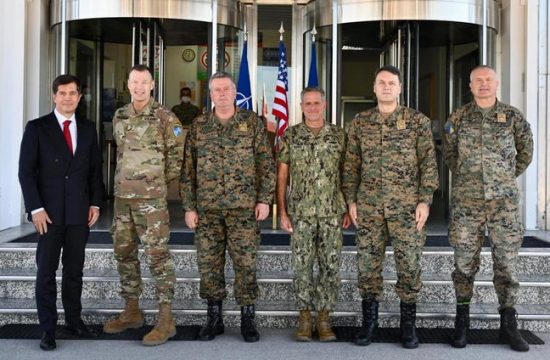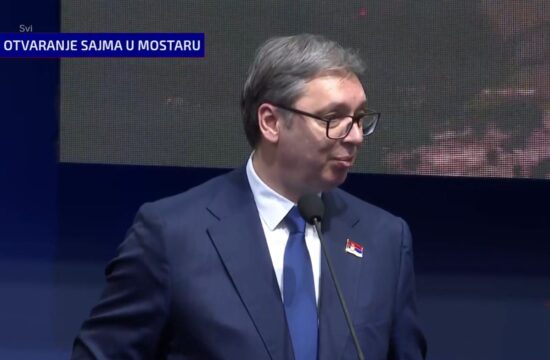
Bosnia is currently not a topic of discussion between the great powers, but the moment the country is discussed, anything those powers agree on will happen and there is nothing any political leader in the country can do about it, author Zlatko Dizdarevic and sociology professor Slavo Kukic told N1 on Wednesday.
Dizdarevic said that Bosnia’s diplomatic choir was “incomparably stronger and of better quality” after the war in the 1990s than today, because “we are not a topic anymore.”
He spoke about the bickering between Bosnia’s political leaders on whether the country should join NATO or not, saying that the opposition of Bosnian Serb leader Milorad Dodik to joining the alliance will become irrelevant if the US and Russia strike a deal on it.
“The moment we become a topic, there will be an intervention. The possibility that America could intervene here is very real. From their perspective, it is laughable to think that Bosnia and Herzegovina will not become a member of NATO because some Dodik objects it,” he said.
“From that perspective, our NATO membership will not depend on whether we sign the ANP (Annual National Programme) or not, especially since we are so small, spineless and obedient,” Dizdarevic explained, adding that the US and Russia will at some point reach an agreement and even the Serbs in Serbia will be let down.
“In the past century, they (Russians) have let them down three times in critical situations, not to mention the bombing of Belgrade. They (USA and Russia) are negotiating today, it is just not our turn yet,” he said, adding that this is “because they have other priorities in the Balkans.”
“When we get on their agenda, they will clean us up,” he said.
Kukic agreed, saying that whenever the big powers decide to tend to the issue of Bosnia, “it will all be done between breakfast and lunch.”
But Bosnia’s politicians are also not interested in making the country a topic of discussion because that would result in reforms which would bring about certain changes.
“Nobody here wants changes,” he said, arguing that the moment when Bosnia begins getting closer to certain reforms, especially when it comes to rule of law, “that is the moment when they all (politicians) will be put on the agenda for what they have been doing for the past 15 or 20 years.”
The reform of the judiciary is the most important issue for the European Union and Bosnia’s politicians are afraid of it, he said, adding that their opposition to such reforms is “not a matter of ideology or passion anymore, but a matter of life and death.”
“Their battle for not implementing reforms in society, hindering it, is a matter of their survival,” he stressed.







